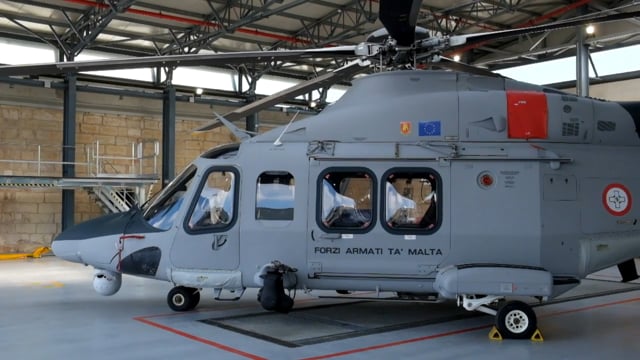UK Defence Secretary says military action in Libya unlikely to happen soon
Michael Fallon in Malta on Home Affairs Minister's request - migration and defence to top agenda








Libya is on the brink of becoming a failed state and the longer the rival factions take to come to an agreement, the harder it will be to tackle the crisis, UK defence secretary of state Michael Fallon said.
He candidly admitted that the EU's planned military action in Libya targeting human traffickers is unlikely to happen in the near future.
In a brief press conference at the Armed Forces of Malta’s air wing base in Luqa, Fallon said “we all have an interest in encouraging a political agreement” among the rival actions which would in turn facilitate an agreement with the EU in tackling the migration crisis.
Libya has two rival parliaments and prime ministers who since last year have been contending for control over the country.
“It is not possible for the European Union to contemplate action in Libya without a legal basis and that requires at resolution [of the UN security council] and a political agreement from Libya. We are a very long way from military action in Libya,” he said.
While the EU has asked its member states to take in 40,000 migrants who land over the next years in Italy and Greece, Britain has already said it will opt out of the relocation plan, which is designed to share the cost of soaring migrant arrivals. Member states would receive €6,000 for every asylum seeker they take in under the relocation scheme.
According to the The Telegraph, Britain may also opt out of the “resettlement plan” – a one-off voluntary scheme which will see 20,000 asylum seekers who are not currently in the EU be housed within member states.
Under the resettlement plan, the EU would ask Britain to accept 2,309 asylum seekers.
But while the UK refuses to take in migrants, insisting that their priority was to attack smugglers, Home Affairs Minister Carmelo Abela said Malta was “thankful” for the military assets Britain was providing, proof of “internal solidarity”.
“The bilateral meeting is a symbol of commitment to further discuss migration and security issues,” Abela told journalists. The defence ministers discussed the CSDP mission at political, military and technical level. The talks took place at the offices of the army’s air wing base.
Italy, who is coordinating the rescue of migrants, is taking in rescued migrants after leading in the search and rescue missions. Fallon denied that it was “selfish” of the UK to refuse participating in the EU resettlement plan while other countries have and continue to receive more asylum seekers, per capita, than the UK.
“There’s nothing selfish in the UK’s participation in rescue missions. Right now, 3,000 migrants are being rescued and the Royal Navy was the first to rescue 1,800 lives. We have the opt out provision but we are also engaging in discussions on the CSDP mission,” Fallon said.
He said that, beyond the humanitarian mission, the EU needed policies that dealt with the causes of migration and how the flows can be reduced.
“We are working as hard as anybody else to shape the CSDP mission that goes back to tackle the causes of migration and hit the trafficking gangs who are making money out of the misery of the people we have been witnessing.”
Aboard a flight of the Royal Navy’s Marlin helicopter, Fallon landed in Malta on Saturday afternoon for a short visit. He was accompanied by a number of defence officials, Neil Thompson - the British government's defence advisor on Malta based in Rome - and High Commissioner Rob Luke.
Ahead of the EU-Africa summit and CHOGM taking place in Malta in the coming months, Abela invited Fallon to Malta for talks on defence and migration. Fallon was also invited for a walk at the Upper Barrakka gardens in Valletta, after the minister found out that Fallon’s father had served as an army doctor in Malta during World War II.






.jpg)
















